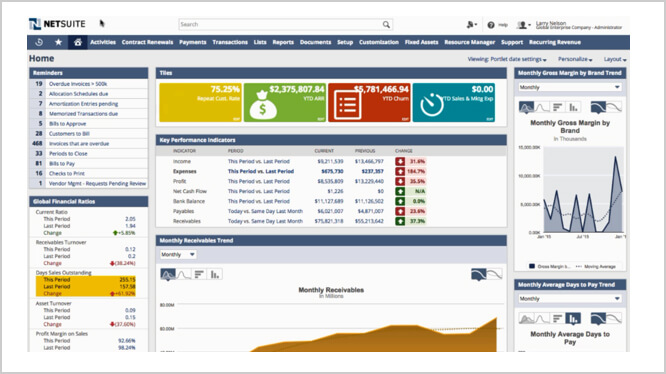Business Intelligence SuiteAnalytics
Home / Business Intelligence SuiteAnalytics
Menu
Embedded Real-Time Insights for Your Custom Applications
SuiteAnalytics provides embedded business intelligence to any customizations or applications built with SuiteCloud, eliminating the need for developers and IT to deal with the complexities of separate reporting tools, BI cubes or data warehousing.
With its intuitive graphical toolset, SuiteAnalytics enables end-users to self-serve real-time analytics across all areas—financials, orders, customers, opportunities and all custom objects—to quickly get the business answers they need.

Key Benefits
- Easily build key performance indicators (KPIs), actionable lists and search analytics for your custom data and applications to maximize productivity
- Embed real-time dashboards with your custom applications, helping end-users to identify key business issues quickly and drill through to detailed records in just a few clicks
- Increase the value of your custom applications with built-in analytics and eliminate the complexities of working with separate reporting tools, data integration and data warehousing.
Key Features
There are three broad categories of functionality provided by SuiteAnalytics. These are here.
- Personalized Real-Time Dashboards
- Complete Self-Service Reporting
- Analytics on the Go

































